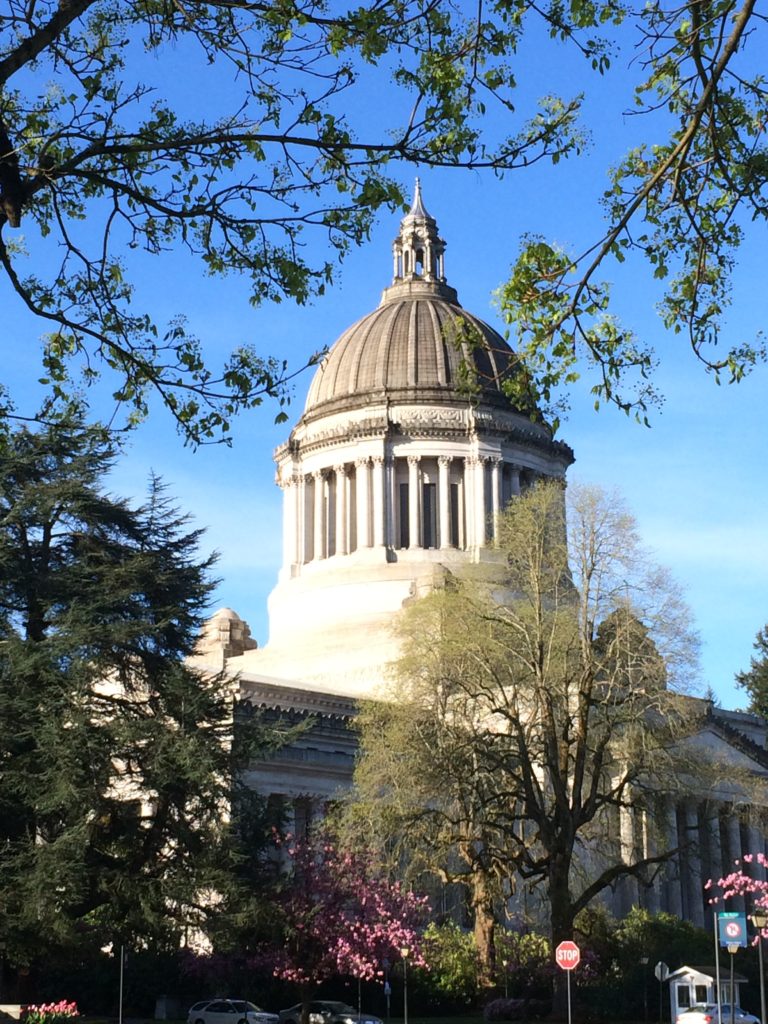END TAX EXEMPTIONS AS OFF-BUDGET SPENDING
BY ADDING THEM AS TAX EXPENDITURES TO THE STATE BUDGET!

Washington State currently gives away more revenue from its tax base than it collects. This is a broken tax system built up over many years.
The Washington State Department of Revenue in their 2016 Tax Expenditure Report projected for the 2015 -2017 biennium that off budget tax expenditures would total almost $40 billion while only collecting revenue totaling some $32.6 billion.
We don’t generally think of them as such but these tax exemptions, preferences, deductions, credits and deferrals are off budget expenditures. They lack the accountability and transparency that exists for other expenditures the state makes as part of the biennial budget process.
The Governor must as part of the biennial budget process evaluate all expenditures according to a Priorities of Government protocol. Unfortunately tax exemptions do not have the same criteria or scrutiny. The result is that while the state legislature is seemingly unable to comply with the Washington State Supreme Court’s McCleary decision to fulfill Washington’s “paramount duty” under the Washington State Constitution to fund public education, it excludes from tax collection billions of dollars.
Taxpayers deserve better accountability and transparency of the state’s tax and revenue system. They deserve to know who is receiving these tax exemptions, how much money is involved and for what reason they are given. They deserve to have a system that prioritizes state needs, not exemptions for special interests and the wealthy that benefit from a system where 90% of the exemptions have no sunset provision while the state budget has a biennial review and vote as to funding.
According to the Washington State Department of Revenue’s 2016 Tax Exemption Study, while the State expects to collect some $7.4 billion in B&O tax revenue in the current 2015 -2017 biennium, it exempts from collection some $11.4 billion. When sales and use taxes were included with the analysis, the results are similar – the state expects to collect some $18.9 billion in revenue from sales and use tax, while exempting some $16.9 billion in revenue
Washington State has created some 694 tax exemptions over the years. Over 450 of these are discretionary tax exemptions, not required by Federal or State constitutional law. These discretionary tax exemptions will account for over $28.3 billion in B &O and sales/use tax revenue not collected in the current biennium..
Including property tax exemptions the 2016 Department of Revenue Report projects that in total, Washington State will see as off budget tax expenditures almost $40 billion in tax exemptions this biennium while only collecting revenues of $32.6 billion for the Legislature to fund its biennial budget.
HB 1500 introduced by Rep.Pollet and 32 other sponsors would require the governor to propose and the state legislature to adopt a Tax Expenditure Budget every 2 years as part of the biennial omnibus operating appropriations act. A companion bill, SB 5513 has been introduced in the WA State Senate by Senator David Frockt with 12 other sponsors.
HB 1500 / SB 5513 would give the Washington State Legislature an opportunity to periodically evaluate the need and effectiveness of the state’s tax exemptions in meeting current state needs. They would do this at the same time they are making budget decisions about prioritizing other state expenditures for public services as part of the biennial budget appropriations process.
What would HB 1500 /SB 5513 – the Tax Exemption Transparency and Accountability Act do?
This measure would require new and existing discretionary tax exemptions to be authorized every two years in a tax expenditure budget. It will add much needed transparency and accountability to the hundreds of exemptions and preferences, along with their cost and how each decision to spend money on an exemption or preference is a choice to expend funds for this purpose with particular beneficiaries.
The tax expenditure budget would detail the fiscal impact, purpose, and effectiveness in meeting the purpose of each tax exemption.
Tax exemption not included in the tax expenditure budget would expire at the end of the calendar year in which the budget is adopted.
Contact your Legislators at www.leg.wa.org and urge them to support the Tax Exemption Transparency and Accountability Act.
Action item – Urging your Legislators to pass HB 1500 and companion bill SB 5513 is easy. You can leave them a message by going to www.leg.wa.gov, entering 1500 or 5513 for the bill number after clicking the bill information link and then clicking on “comment on this bill.” Or call the Legislative hotline at 1-800-562-6000 and leave a message to for your legislators and the Governor to support HB 1500 and SB 5513 to prioritize state spending, accountability and transparency by creating a Tax Expenditure Budget as part of the biennial budget appropriations process.
Be sure to thank your legislators if they are a sponsor of this legislation. Their support is appreciated. Legislators sponsoring HB 1500 – Pollet, Farrell, Appleton, Tarleton, Ryu, Wylie, Santos, Marci, Doglio, Jinkins, Orwall, Tharinger, Stonier, Kagi, Fitzgibbon, Kloba, Stanford, Berquist, McBride, Ortiz-Self, Goodman, Dolan, Cody, Pettigrew, Riccelli, Sells, Hudgins, Kirby, Lovick, Frame, Peterson, Ormsby, Pellicciotti
Legislators sponsoring SB 5513 – Frockt, Hasegawa, Miloscia, Rolfes, Saldana, Keiser, Wellman, Conway, Chase, Billig, Kuderer, Hunt, McCoy


